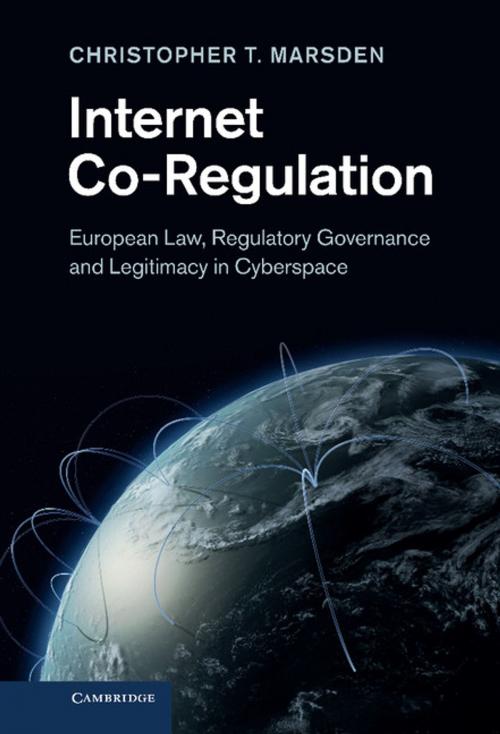Internet Co-Regulation
European Law, Regulatory Governance and Legitimacy in Cyberspace
Nonfiction, Reference & Language, Law, Commercial| Author: | Christopher T. Marsden | ISBN: | 9781139097543 |
| Publisher: | Cambridge University Press | Publication: | August 18, 2011 |
| Imprint: | Cambridge University Press | Language: | English |
| Author: | Christopher T. Marsden |
| ISBN: | 9781139097543 |
| Publisher: | Cambridge University Press |
| Publication: | August 18, 2011 |
| Imprint: | Cambridge University Press |
| Language: | English |
Chris Marsden argues that co-regulation is the defining feature of the Internet in Europe. Co-regulation offers the state a route back into questions of legitimacy, governance and human rights, thereby opening up more interesting conversations than a static no-regulation versus state regulation binary choice. The basis for the argument is empirical investigation, based on a multi-year, European Commission-funded study and is further reinforced by the direction of travel in European and English law and policy, including the Digital Economy Act 2010. He places Internet regulation within the regulatory mainstream, as an advanced technocratic form of self- and co-regulation which requires governance reform to address a growing constitutional legitimacy gap. The literature review, case studies and analysis shed a welcome light on policymaking at the centre of Internet regulation in Brussels, London and Washington, revealing the extent to which states, firms and, increasingly, citizens are developing a new type of regulatory bargain.
Chris Marsden argues that co-regulation is the defining feature of the Internet in Europe. Co-regulation offers the state a route back into questions of legitimacy, governance and human rights, thereby opening up more interesting conversations than a static no-regulation versus state regulation binary choice. The basis for the argument is empirical investigation, based on a multi-year, European Commission-funded study and is further reinforced by the direction of travel in European and English law and policy, including the Digital Economy Act 2010. He places Internet regulation within the regulatory mainstream, as an advanced technocratic form of self- and co-regulation which requires governance reform to address a growing constitutional legitimacy gap. The literature review, case studies and analysis shed a welcome light on policymaking at the centre of Internet regulation in Brussels, London and Washington, revealing the extent to which states, firms and, increasingly, citizens are developing a new type of regulatory bargain.















